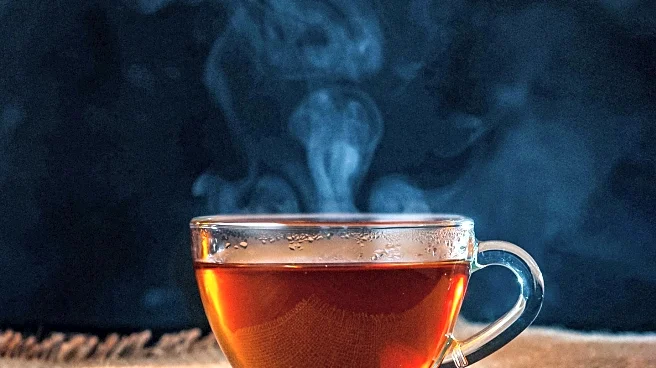What is the story about?
What's Happening?
Recent research indicates that regular consumption of tea and coffee may be linked to a reduced risk of developing head and neck cancers. The study, led by Dr. Yuan-Chin Amy Lee from the Huntsman Cancer Institute and the University of Utah School of Medicine, analyzed data from 14 studies across Europe, North America, and Latin America. The research involved 9,548 individuals diagnosed with head and neck cancers and 15,783 without the disease. Participants provided detailed information about their coffee and tea drinking habits. Findings suggest that individuals who consume more than four cups of caffeinated coffee daily have a 17% lower chance of developing these cancers. The protective effect was most notable for cancers in the oral cavity and oropharynx. Decaffeinated coffee also showed some benefits, particularly in reducing oral cavity cancer risk. However, the study found that drinking more than one cup of tea daily could increase the risk of laryngeal cancer by 38%, possibly due to tea's contribution to acid reflux.
Why It's Important?
This research is significant as it highlights the potential health benefits of common beverages like tea and coffee, which are widely consumed in the U.S. and globally. The findings could influence public health recommendations and dietary guidelines, emphasizing the role of dietary choices in cancer prevention. The study suggests that compounds in coffee and tea, such as antioxidants and polyphenols, may contribute to reducing cancer risk. However, the research also underscores the complexity of these relationships, as excessive tea consumption may increase certain cancer risks. This highlights the importance of moderation and the need for further studies to understand the specific effects of these beverages on different types of cancer.
What's Next?
Further research is needed to explore the mechanisms by which tea and coffee may influence cancer risk and to identify which compounds are most beneficial. Future studies could also examine the impact of different types of tea and coffee preparation methods. Public health officials and researchers may use these findings to develop more targeted cancer prevention strategies. Additionally, individuals may consider these findings when making dietary choices, balancing their tea and coffee consumption with other lifestyle factors known to reduce cancer risk, such as avoiding smoking and limiting alcohol intake.
Beyond the Headlines
The study raises questions about the broader implications of dietary habits on health and the potential for everyday beverages to contribute to cancer prevention. It also highlights the challenges in establishing direct cause-and-effect relationships in nutritional research, given the influence of various lifestyle factors. The findings may prompt discussions about the role of antioxidants and polyphenols in cancer prevention and the need for personalized dietary recommendations based on individual health profiles and genetic predispositions.















